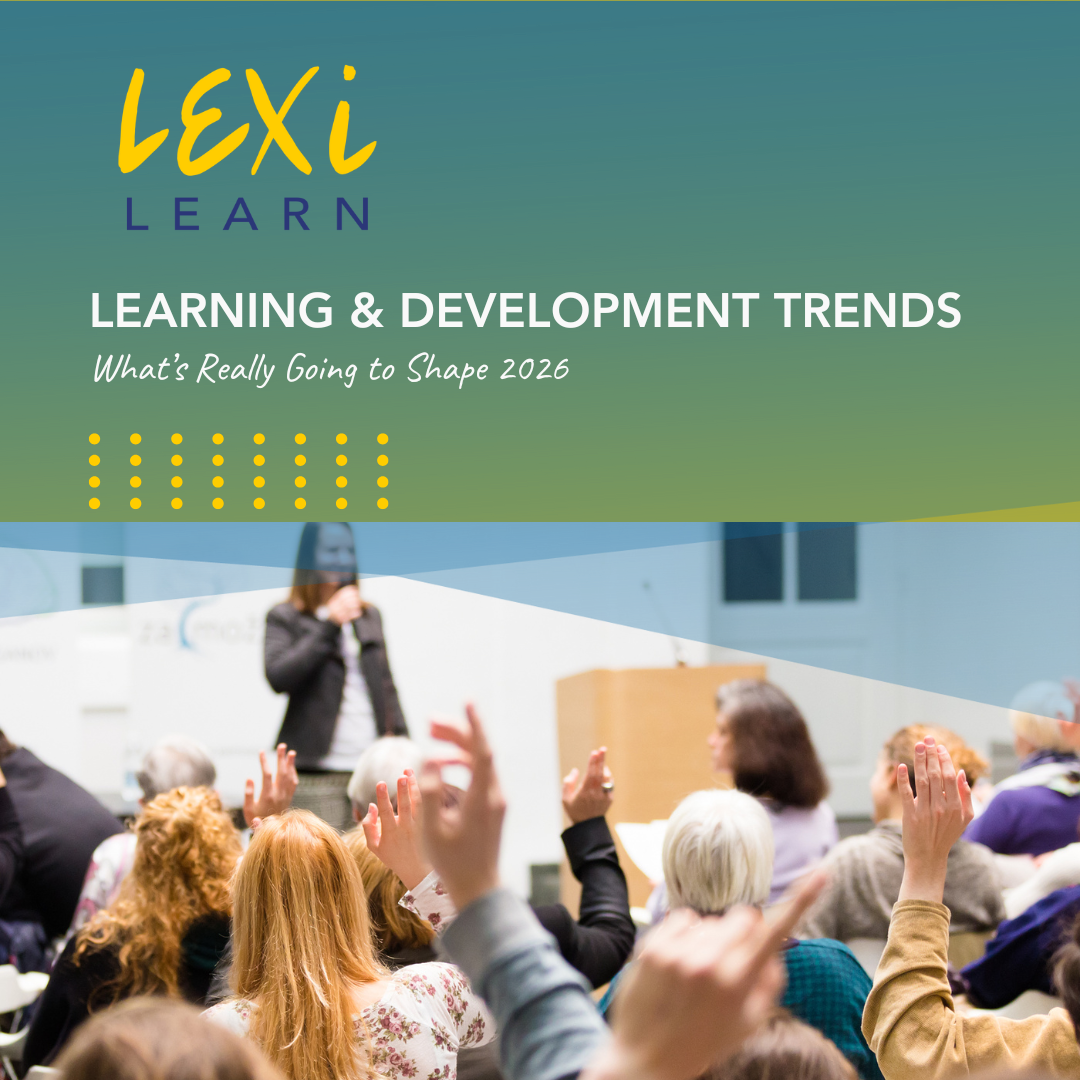Brace yourself: the annual flood of “L&D trends” is on its way. But before we drown in predictions about microlearning, AI and yet another “skills revolution”, here’s what we’re actually seeing – in real rooms, with real people.
LEXi Learn works at the point where learning meets performance: in the messy, emotional, human moments where real change can happen.
So, here’s our take on what’s really going to be shaping 2026.

Forget soft skills. It’s time to recognise them for what they really are, power skills. 2026 will belong to people who can decode human behaviour – understanding what drives reactions, how to flex communication and how to build trust fast.
Empathy has been on the leadership radar for some time, but it’s now widely accepted as a core strength – a defining aspect of behavioural intelligence and a capability today’s leaders are expected to demonstrate.
Behavioural models – classics, like the four Social Styles and Transactional Analysis – are having a quiet renaissance because they give people language, context and structure, not labels. They turn “why is this person so difficult” into “Ah, here’s what they need from me.”
In 2026, L&D leaders who invest in behavioural intelligence will build cultures that can adapt, collaborate and lead through uncertainty – skills no AI can replicate.
The era of the solo high-performer is fading. Organisations are learning that success in 2026 will come from teams who know how to perform as one.
With mergers, restructures and hybrid models continuing, the ability to navigate culture collisions and rebuild connections across dispersed teams is critical. Hybrid working, in particular, continues to test how teams communicate and stay cohesive when people are rarely in the same room and organisations continue to struggle to find the right balance between full-time office-based models and the hybrid models many employees are asking for. All of this means that learning which focuses on team effectiveness, shared accountability, and trust-building will take priority.
As Patrick Lencioni’s Five Dysfunctions of a Team reminds us, the fundamentals haven’t changed much in two decades: trust sits at the base, followed by healthy conflict, commitment, accountability and results. The challenge now is re-building those layers in constantly changing environments.
2026 will be the year organisations ask not “who do we need to develop?” but “how do we help our teams perform together?”
The message from learners is clear: talking about behaviour change isn’t the same as practicing it.
In short: 2026 will reward organisations that put people in the room, even if that room is hybrid.
So what are the themes underneath every leadership or culture programme this year?
Confidence. Trust. Safety.
Economic pressure, hybrid fatigue and perpetual organisational change have shaken even senior leaders’ sense of security. Meanwhile, levels of imposter syndrome appear to be rising, both in men and women.
People aren’t just seeking to learn how to lead; they want to learn how to feel safe enough to lead.
In 2026, programmes that build psychological safety, resilience and self-belief will no longer be “nice to have.” They’ll be the foundation of performance.
The L&D landscape is saturated with options – tools, tech, methodologies and promises.
In 2026, success won’t come from doing more, but from choosing better.
Heads of HR and L&D will look for partners, not providers: people who understand their culture, translate insight into practice and help them make confident decisions about where learning really adds value.
That’s where LEXi Learn works best, cutting through the noise to focus on what moves people and performance forward. It’s not about being the loudest in the room, it’s about helping organisations find the clearest one.
2026 won’t just be about shiny tech or new jargon.
It will also be about confidence, connection, and collaboration – the fundamentals that keep people learning and organisations moving forward.
AI will play its part. But the L&D leaders who thrive will be those who know when to automate and when to make it human.
And if you’re looking for a collaborator, aide, or visionary to help you get there – we’re already on it.
